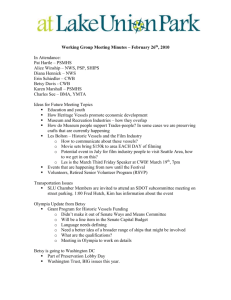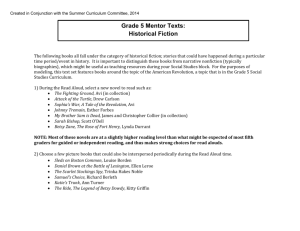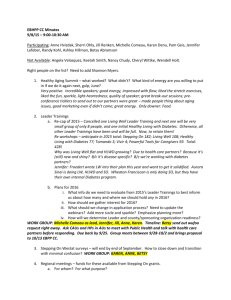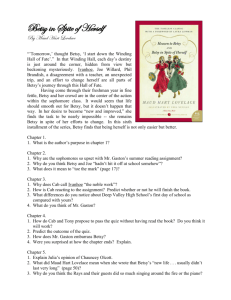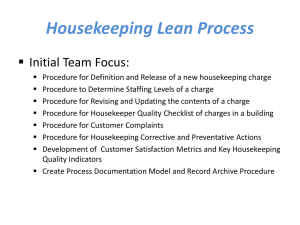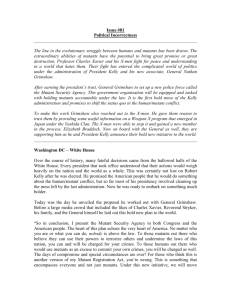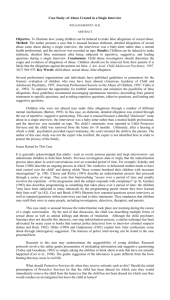Betsy Case Study of a Client with Down`s Syndrome and Dementia
advertisement
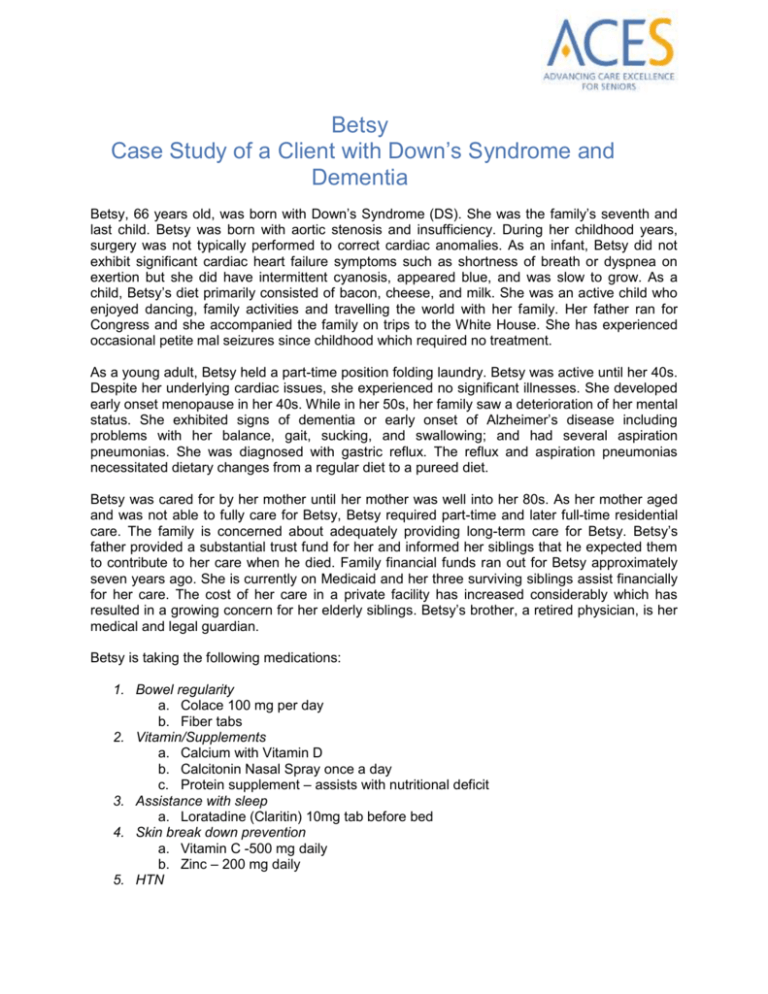
Betsy Case Study of a Client with Down’s Syndrome and Dementia Betsy, 66 years old, was born with Down’s Syndrome (DS). She was the family’s seventh and last child. Betsy was born with aortic stenosis and insufficiency. During her childhood years, surgery was not typically performed to correct cardiac anomalies. As an infant, Betsy did not exhibit significant cardiac heart failure symptoms such as shortness of breath or dyspnea on exertion but she did have intermittent cyanosis, appeared blue, and was slow to grow. As a child, Betsy’s diet primarily consisted of bacon, cheese, and milk. She was an active child who enjoyed dancing, family activities and travelling the world with her family. Her father ran for Congress and she accompanied the family on trips to the White House. She has experienced occasional petite mal seizures since childhood which required no treatment. As a young adult, Betsy held a part-time position folding laundry. Betsy was active until her 40s. Despite her underlying cardiac issues, she experienced no significant illnesses. She developed early onset menopause in her 40s. While in her 50s, her family saw a deterioration of her mental status. She exhibited signs of dementia or early onset of Alzheimer’s disease including problems with her balance, gait, sucking, and swallowing; and had several aspiration pneumonias. She was diagnosed with gastric reflux. The reflux and aspiration pneumonias necessitated dietary changes from a regular diet to a pureed diet. Betsy was cared for by her mother until her mother was well into her 80s. As her mother aged and was not able to fully care for Betsy, Betsy required part-time and later full-time residential care. The family is concerned about adequately providing long-term care for Betsy. Betsy’s father provided a substantial trust fund for her and informed her siblings that he expected them to contribute to her care when he died. Family financial funds ran out for Betsy approximately seven years ago. She is currently on Medicaid and her three surviving siblings assist financially for her care. The cost of her care in a private facility has increased considerably which has resulted in a growing concern for her elderly siblings. Betsy’s brother, a retired physician, is her medical and legal guardian. Betsy is taking the following medications: 1. Bowel regularity a. Colace 100 mg per day b. Fiber tabs 2. Vitamin/Supplements a. Calcium with Vitamin D b. Calcitonin Nasal Spray once a day c. Protein supplement – assists with nutritional deficit 3. Assistance with sleep a. Loratadine (Claritin) 10mg tab before bed 4. Skin break down prevention a. Vitamin C -500 mg daily b. Zinc – 200 mg daily 5. HTN a. Amlodipine (Norvasc) 5 mg per day 6. GERD a. Omeprazole (Prilosec) 20 mg per day Some time ago, Aricept was initiated for Betsy for Alzheimer symptoms. She was started on 5 mg and titrated to 10 mg over a 6-12 month span of time. There was no improvement in her Alzheimer symptoms and it became harder for her to swallow pills. When she started on hospice, Aricept was discontinued. Dementia medications were recently discontinued as she was no longer responding to them. a. Aricept 5 mg per day b. Namenda 5 mg per day Betsy is currently confined to a wheelchair and is in hospice care because of the severity of her dementia symptoms, bedsores, and her inability to take in food or fluid without assistance. The nurses and her family note her responsiveness; recognition of familiar people continues to decrease to vague smiles and occasional utterances.
